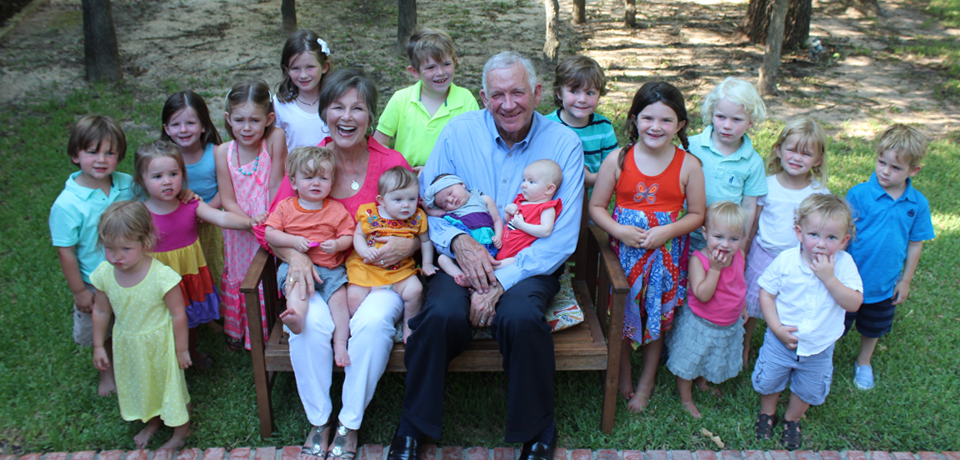2My wife Sue and I love to tell stories about our 17 grandchildren, but we can never say we have 17 grandchildren when we don’t also know that two of our grandsons are already in the presence of the Lord.*
One of those little boys lived nine days, and the other little boy lived just five hours.
Every time one of the girls announces she is pregnant, we are joyous, but we also feel anxious. We pay close attention to every test. We wait for the third month of pregnancy to pass because we know how important that is. Every time one of the girls goes to the doctor we want to hear all about it because we’re afraid that something will go wrong.
Paul knew what to do when he was afraid.
The Apostle Paul understood this kind of fear. He wrote to his friends in Philippi from Roman imprisonment, knowing that he might well die at the hands of Roman authorities.
He also knew that the Philippians were likely experiencing some of the same hardships, and he shared with them what he’d learned about how to face these trials with integrity:
Rejoice in the Lord always; again I will say, rejoice! Let your gentle spirit be known to all men. The Lord is near. Be anxious for nothing, but in everything by prayer and supplication with thanksgiving let your requests be made known to God. And the peace of God, which surpasses all comprehension, will guard your hearts and your minds in Christ Jesus. (Philippians 4:4-7)
Immerse yourself in the Scriptures.
These instructions came straight out of the Psalms. Paul was immersed in the Scriptures, and he had no doubt memorized many Psalms. He drew on these deep resources and on his own experience when he wrote, “Rejoice in the Lord always. Again, I will say, rejoice.”
The word rejoice, of course, means to have joy. Paul was not referring to a superficial joy, but to a life governed by worship of the one true and living God. We are to orient our lives around the Lord whom we worship.
The Psalms teach this. Look for the words “rejoice,” “joy,” and “thanksgiving” when you read the Psalms, and think about what those words meant to the Psalmist. Paul had that context in mind when he told the Philippians to rejoice.
Look at Psalm 95, for example:
O come, let us sing for joy to the Lord, Let us shout joyfully to the rock of our salvation. Let us come before his presence with thanksgiving… (Psalm 95:1-2)
Already you can see the words joy and thanksgiving. The Lord is the one true God, and we must come into his presence and offer Him the worship that He is due. He is the true God.
The other gods are not worthy of worship, but the God of Israel is the God who made all things. The God of Israel is the God who redeemed Israel from Egypt. The God of Israel is the one who has chosen Israel. Of course, through Christ now He has chosen us as sons and daughters of Abraham.
We are the people of God, so therefore He alone is worthy of our worship. We rejoice, and we orient our lives around him.
I have blogged extensively about the Psalms. You can read some of those blogs here.
What are your reasons for worship?
The Psalmist continues, “Let us shout joyfully to Him with Psalms. For the Lord…” He goes on in the following verses to explain why we should “shout joyfully to Him with Psalms.” We must have reasons for worship, and the Psalmist lists a few of these reasons for us:
For the Lord God is a great God, and a great King above all gods, in whose hand are the depths of the earth, the peaks of the mountains are His also. (Psalm 95:3-4)
What answer did Paul get from the Psalms to help him as he spoke to the Philippians about their anxieties?
Paul was inspired to return to those themes that involve the word rejoice. He thought about worship. He thought about the deepest forms of trust that come, not only from private songs in the heart, but also from the corporate worship of God’s people. He thought about all those things that would, through worship, change the way he thought, and then the way he lived.
Isn’t it amazing how Paul’s knowledge of the Old Testament influenced the things that he wrote in the New Testament? The Scriptures had truly changed his mind and transformed his way of thinking. He was completely immersed in God’s word.
The more we commit ourselves to the study of the Scriptures—both privately, and publicly in worship—the more we’ll find that our hearts and minds are changed so that our thinking and our living are transformed.
*As of December 2018, the Sloans have 22 grandchildren.
The previous was adapted by Rachel Motte from a sermon featured on Dr. Sloan’s radio program, A Higher Education, on August 1, 2013.
